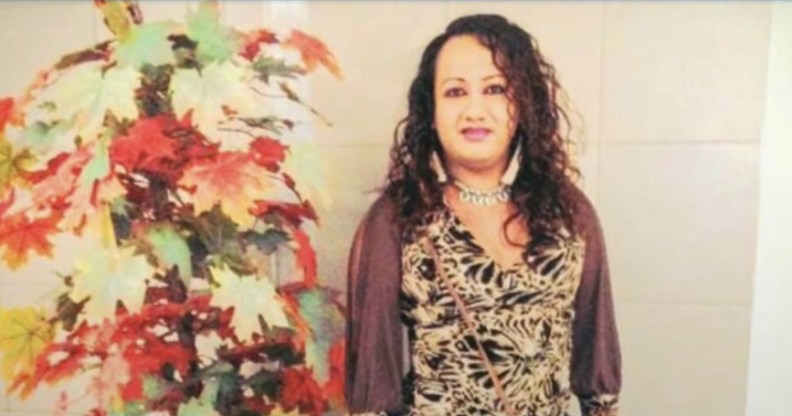Murder trial of trans woman allegedly killed by police officers to proceed, but it won’t be classed as a hate crime

Camila Díaz Córdova. (YouTube)
The murder trial of a trans woman who was allegedly brutally killed by police will go ahead in El Salvador, but will proceed without a hate crime classification.
Camila Díaz Córdova was allegedly detained by three police officers and brutally assaulted in a pickup truck and later thrown out of the moving vehicle, resulting in her death in 2019, according to Human Rights Watch.
An investigating judge in San Salvador ruled yesterday that the three police officers’ murder trial will go ahead – however, activists are disappointed that it will not have a hate crime classification. They are also frustrated by the refusal to charge the officers with unlawful deprivation of liberty.
At least seven trans women have been victim of murder in El Salvador in recent months.
Camila Díaz Córdova had tried to flee El Salvador in the years before her death. In August 2017, she arrived in the United States where she intended to claim asylum, but she was detained and subsequently deported in November of that year. She died just over a year later.
LGBT+ activists in the country hope that a successful prosecution of the police officers could deter others from enacting violence against the trans community.
The only thing that I can really say is that it is clear that our country’s judicial system remains obsolete.
Córdova’s murder was not a lone incident in El Salvador, where at least seven trans women have been murdered in the last few months alone.
A friend of Camila Díaz Córdova was told that she had likely been hit by a car shortly before her death.
Virginia Gómez, who shared a house with Camila Díaz Córdova, told the Washington Blade in January that her friend left their home on January 30 2019 and never returned.
When she tracked down Córdova, she was in a hospital and doctors said she had likely been hit by a car. Diaz died on February 3 after undergoing several surgeries in an effort to save her life.
In the years before her death, she had tried to seek asylum in Guatemala and in Mexico, but had returned to El Salvador on both occasions.
Speaking in January, trans activist Ambar Alfaro said: “A year from the date on which they attacked and practically kidnapped Camila, the only thing that I can really say is that it is clear that our country’s judicial system remains obsolete.”
“Beyond that there is also the feeling of impunity surrounding hate crimes, as well as with Camila’s murder.”

